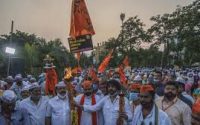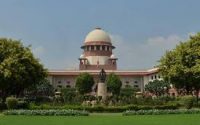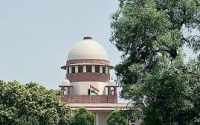Why insist Ayodhya land is divine, Supreme Court asks Hindus
Source: thehindu.com
A legal fiction to create rights of the deity, responds counsel
The Supreme Court asked the Ayodhya deity’s lawyer why the Hindus insist the disputed land is divine.
The court questioned why the Hindu parties want the disputed land to be recognised not only as a separate juristic person but also as a divinity.
“Why do you insist on divinity (to Ramjanmabhumi) to establish juristic personality to the land? A ship is a juristic person, but not divine…,” Justice S.A. Bobde, on the five-judge Ayodhya Bench led by Chief Justice Ranjan Gogoi, asked senior advocate K. Parasaran.
‘Tangible form’
“Ordinary people need tangible forms of god to concentrate while worshipping unlike those in higher state of devotion,” Mr. Parasaran, representing the Ayodhya deity, Ram Lalla Virajman, replied. “But why is it in this case you need bestow divinity to the land?” Justice Bobde persisted. To this, Mr. Parasaran expanded the concept, but first asked a counter-question to the Bench. “Then why give divinity to the idol also?” Mr. Parasaran asked the judges.
He then explained a legal fiction is created for a need. In this case, it is to secure the rights and obligations of the deity. The land should be accorded a divine status to protect the people’s belief in it as the birthplace of Lord Ram.
“The Janmasthan itself, being an object of worship by Hindus, was widely believed to be a deity and offering worship to the land constitutes the religious practice of a substantial and large class of persons who visit Ayodhya to worship Lord Ram. There is, thus, sufficient religious merit to treat the Janmasthan as a juristic entity on the basis of the belief that it is a manifestation of Lord Ram and hence sacred,” Mr. Parasaran submitted.
Babur’s motivation
Earlier in the day, Justice Bobde countered the Muslim side’s argument on the futility of trying to fix morality in the conquests, wars and spoils of war of past centuries. This was in the context of the Hindus’ version that Mughal Emperor Babur demolished a temple dedicated to Lord Ram to build the Babri Masjid in the 16th century.
“We are not here to see if Babur was a sinner. We are here to see if Babur followed the law on the secular use of property… to see if he was subject to any law,” Justice Bobde observed.
To this, advocate Nizam Pasha, for a Muslim party, explained that Babur was the sovereign and what he did was the law at the time.
“Today we have moved so far from what a sovereign was in those days… We cannot assume that the law was Sharia at the time of Babur and then say law was not followed by Babur and say what he did (building Babri Masjid) was wrong,” Mr. Pasha argued.
He attempted to demolish the “dogmatic” picture of a mosque in Islam presented in court by the Hindu side in the Ayodhya case. “The idea of a mosque in Islam is also that of a cultural centre,” Mr. Pasha submitted.
Senior advocate C.S. Vaidynathan, also for Ram Lalla Virajman, meanwhile made it clear that they did not want any part of the Ayodhya mediation efforts.
The CJI responded that the Bench was hearing the appeals with the objective to complete the court hearing by October 18, if not a day earlier on October 17.
The Chief Justice said the Bench would even consider sitting on Saturdays to stick to its schedule



